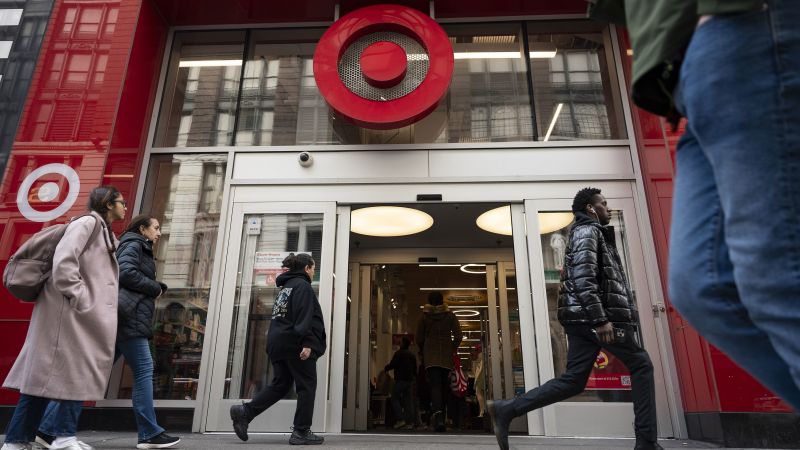In January 2023, Target Corporation made a significant announcement regarding its commitment to diversity, equity, and inclusion (DEI), stating it would be scaling back its initiatives. This decision prompted an immediate and vocal response from customers who viewed the company’s retreat from previously touted diversity efforts as disheartening and emblematic of a larger threat to socially conscious corporate policies. As consumers expressed their disappointment, this backlash was compounded by a noticeable decline in foot traffic, with analytics firm Placer.ai reporting a 9% drop year-over-year in February and a further 6.5% reduction in March. Although the reasons behind this decline were multifaceted, including seasonal shopping shifts and changes in consumer spending habits post-holidays, there were voices in the community attributing the downturn to calls for a boycott led by Rev. Jamal Bryant.
Rev. Bryant, the senior pastor at New Birth Missionary Baptist Church in Atlanta, organized a 40-day “fast” from shopping at Target coinciding with the Lent season from March 5 to April 17. The boycott garnered substantial traction, with over 200,000 participants rallying around the cause. The faith leader emphasized that powerful entities like Target must recognize consumer demands and their influence on corporate policies, suggesting that the willingness to withdraw support could send a potent message about the company’s approach to DEI.
Target’s predicament illustrates the precarious balance many corporations must navigate amid fluctuating public sentiment and political pressure. Following political movements and demands from figures such as Donald Trump to dismantle DEI initiatives, companies like Target have faced significant scrutiny. The company had historically positioned itself as a champion of diversity, promoting hiring practices aimed at increasing minority representation and sourcing products from diverse suppliers. However, the announcement to unwind some of these commitments cast doubt on their previously stated values.
Following discussions with Rev. Bryant, Target agreed to maintain its commitment to allocate $2 billion toward Black-owned businesses—a pledge made in 2021. Nevertheless, this adjustment was not perceived as sufficient by Bryant and supporters of the boycott, prompting continued protests and calls for transparency from Target’s leadership. The implications of such corporate decisions are substantial, particularly when considering that the African American community is projected to possess a buying power nearing $2 trillion by 2026.
The fallout from the DEI strategy reversal has been stark. Customers who once viewed Target as a supportive ally in diversity initiatives have expressed feelings of betrayal. The disappointment among prominent figures, including the daughters of one of Target’s co-founders, further emphasizes the internal division within the company regarding its corporate values. This shift has placed additional pressure on Target to navigate an increasingly polarized market where maintaining a progressive stance can lead to backlash from multiple fronts.
Moreover, the backlash has been exacerbated by the presence of other pressure groups that criticize companies for straying from DEI. In this context, the callable customer loyalty that Target previously enjoyed is now at risk. It has become evident that Target’s more progressive customer base demands a stronger commitment to these values than competitors like Walmart and John Deere, contributing to its vulnerability amid societal and political currents.
Despite the controversy, the company maintains that it continues to support Black-owned and minority-owned brands on its shelves. However, the broader downturn in sales due to reduced shopper traffic negatively affects these products too. For example, businesses run by Black entrepreneurs, previously showcased in Target, are now experiencing sales declines. Some owners, such as Chantel Powell—who founded Play Pits—have noted shifting consumer behaviors, with direct website sales increasing as people consciously alter their shopping patterns amid the boycott.
The fallout for Target continues as Bryant and other advocates encourage consumers to redirect their spending toward Black-owned businesses instead. Initiatives such as the “Bullseye Black Market,” launched by Bryant’s church, exemplify community-led efforts to support local entrepreneurs while the boycott persists.
In conclusion, Target’s shifting stance on DEI programming reflects the challenges faced by corporations in today’s increasingly polarized climate. As the fallout from its decisions unfolds, it underscores not only the potential consequences of disavowing previously championed values but also the importance of consumer agency in shaping corporate direction. With significant financial implications on the horizon, the ongoing dynamics between consumer expectations and corporate actions will be critical to observe.



